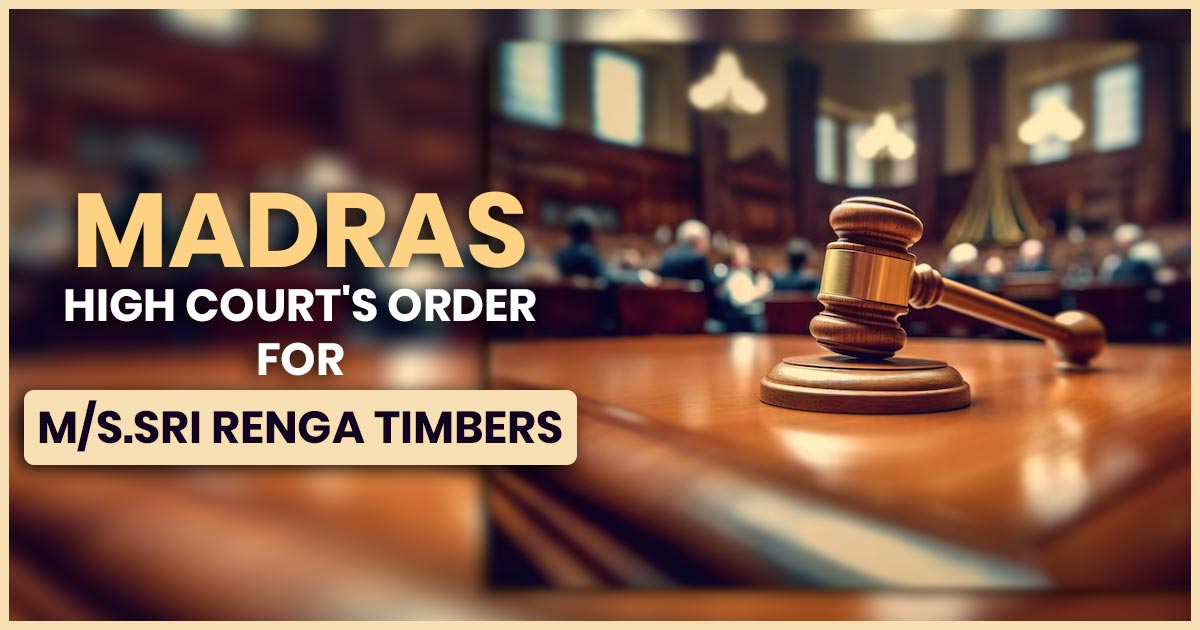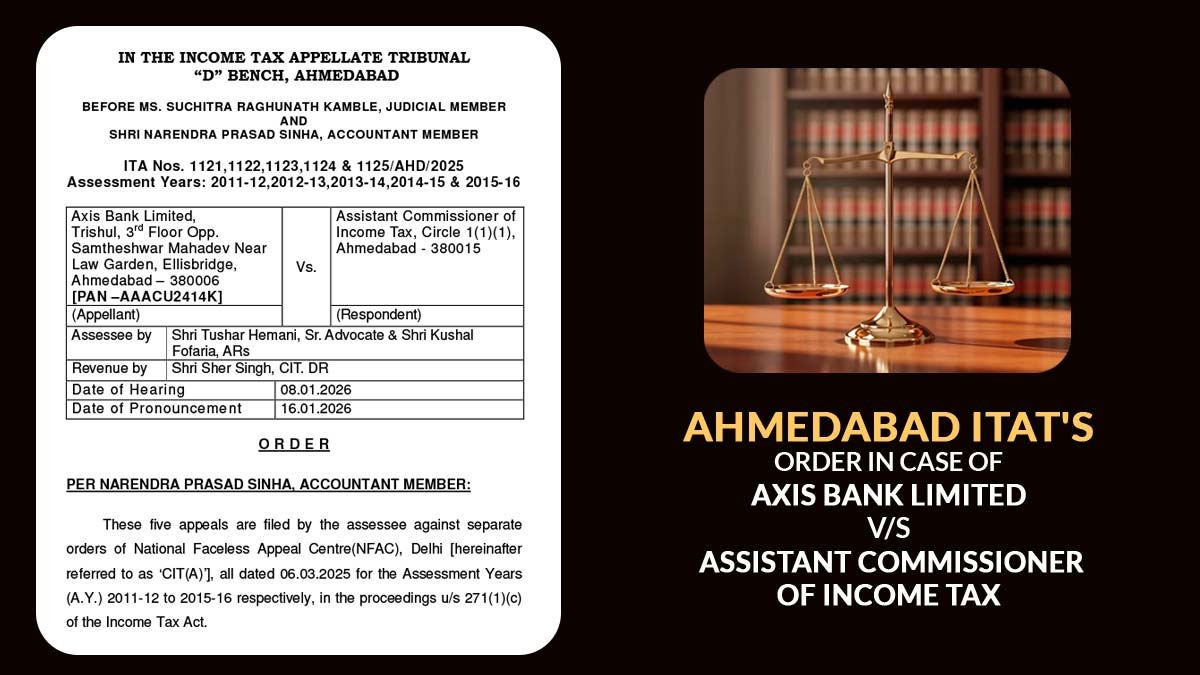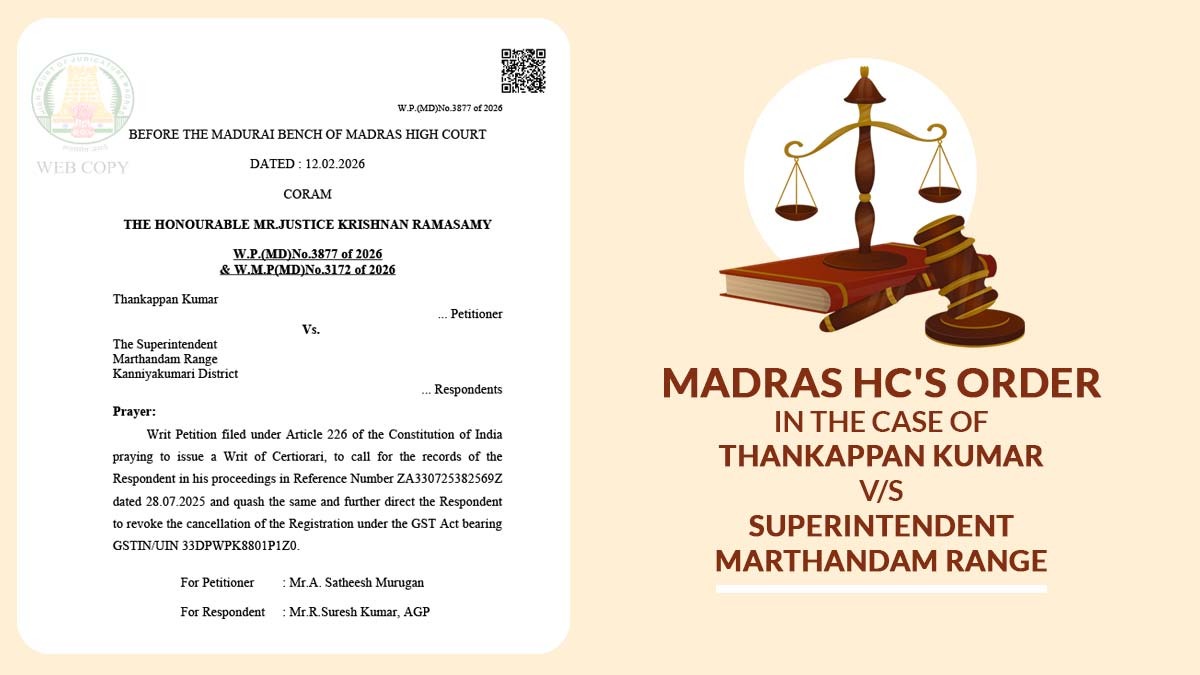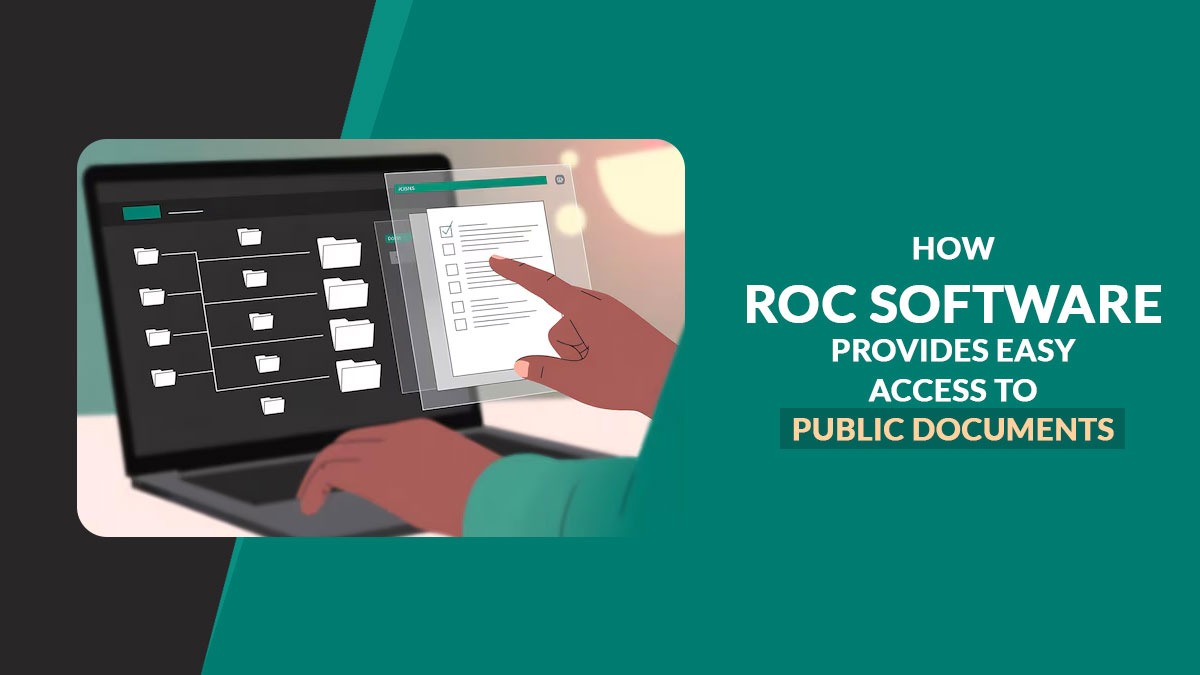
The Hon’ble Madras High Court has set aside the order issued by the Adjudicating Authority in the case of M/s. Sri Renga Timbers v. The Assistant Commissioner (ST) (FAC) [W.P. No. 22854 of 2023, August 17, 2023]. The court affirmed that legally availed credit cannot be refused, even if there were errors committed twice in filing the GST TRAN-1 returns.
Real Facts
M/s. Sri Renga Timbers (“the Petitioner”) was previously registered under the Tamil Nadu Value Added Tax (TNVAT) Act, 2006. With the introduction of GST, the Petitioner filed form TRAN-1 under Section 140 of the Central Goods and Services Tax (CGST) Act, 2017 to transition the Input Tax Credit (ITC), which was not utilized, to the GST regime as of June 30, 2017.
Read Also: How to Maintain Input Tax Credit Ledger By Gen GST Software
The Input tax credit on the stock of inventory of locally purchased taxable goods amounting to INR 6,19,89,648/ was transferred by the petitioner and reported an ITC balance of INR 89,88,498/- in the returns for June 2017.
Further, the aforesaid ITC was transferred to table 5(c) by the petitioner in the third column for State/Union Territory tax as credit carried forward in form TRAN-1 filed on August 24, 2017.
Subsequently, the aforementioned Input Tax Credit (ITC) was also utilized by the Petitioner to fulfil the tax obligations for the supplies made under the Tamil Nadu Goods and Services Tax Act, 2017 during the specified period.
In 2022, following the decision of the Hon’ble Supreme Court in Union of India v. Filco Trade Centre Private Limited [SLP(C)Nos.32709 & 32710 of 2018 dated July 22, 2022, and September 02, 2022], the Petitioner filed a revised TRAN-1 return on November 28, 2022. This move was taken in response to challenges faced by the assessee and to deal with them while filing Form GST TRAN-1 due to technical glitches in the web portal, as the decision was to rectify such issues.
However, during this revision procedure, the Petitioner deviated from the regular practice of displaying the credit amount in column 2 for State/Union Territory Tax under Table 7.c, which pertains to the amount of VAT and Entry Tax paid on inputs supported by invoices under the caption “Inputs Held in Stock.” Instead, the Petitioner recorded an entry in Table 7.a.A, specifically designated for Input Held in Stock, for example, where invoices reflecting duty payments were available.
The Petitioner promptly brought this error to the attention of the Superintendent of GST & Central Excise, Tiruvarur Range.
Following a clarification issued by the Principal Secretary/Commissioner of State Tax through Circular No.19/2022 – TNGST (PP6/GST/145/2022) dated December 14, 2022, the Revenue Department, the Respondent, the Assistant Commissioner (ST) (FAC), Mayiladuthurai, concluded that the Petitioner wrongly claimed and used the excess SGST credit of Rs. 89,88,499/- based on both the revised and earlier Form GST TRAN-1 filings, and raised demands for the aforesaid credit.
And, a show cause notice was issued by the Authority denying the ITC amounting to INR 89,88,498/-.
Subsequently, the Adjudicating Authority, through an order dated February 27, 2023, the Impugned Order, concluded that the Petitioner had incorrectly asserted and utilized the surplus SGST credit amounting to INR 89,88,499/- based on both the revised Form GST TRAN-1 and the previous Form GST TRAN-1 for claiming the aforementioned credit.
Dissatisfied with the Impugned Order, the Petitioner initiated further and filed a writ petition before the Madras High Court.
The Petitioner’s argument centred on the fact that an error had occurred not once but twice in the process of availing credit. The credit initially availed on the stock lying as of June 30, 2017, which was transitioned in FORM TRAN-1 on August 24, 2017, and was by mistake, the sum of VAT/Entry tax paid on inputs with supporting invoices in Table 7.c labelled as “Inputs Held in Stock.” However, the Petitioner had intended to rectify this by submitting a revised return on November 28, 2022. However, an unintentional mistake resulted in the filing of a revised TRAN-1, showing the sum against “inputs held in stock” where invoices for duty payments were available, in Table 7.a.A.
In response, the Respondent argued that as of now, only the revised TRAN-1 is available. On the grounds of the Petitioner’s own admission that the credit had been wrongly transited and that no credit was available under Table 7.c in TRAN-1, the amount previously utilized by the Petitioner is liable to be refused. Therefore, the petitioner is liable to pay INR 89,88,499/- along with interest.
Matter
The matter in short is- whether the credit could be denied when the taxpayer had made errors while filling out TRAN-1.
Madras High Court Ruling
The Hon’ble Madras High Court, in W.P. No. 22854 of 2023, issued the following rulings:
- The Court noted that credit validly availed is guarded as per the law and cannot be set aside, and the Petitioner’s mistakes in GST filing FORM TRAN-1 on August 24, 2017, and the subsequent revised return on November 28, 2022, indicated that the amount of INR 89,88,498/- was an unutilized credit from the Petitioner’s previous return filed for June 2017.
- The Court opined that such credit could not be denied, even if the errors were committed twice while submitting TRAN-1 returns.
- The Court relied on the case of Unichem Laboratories v. Commissioner of Central Excise [(2002)7 SCC 145], where the Hon’ble Supreme Court came to a decision that it is not the duty of the revenue authorities to deny a benefit for which an assessee is legally liable and the credit is available.
- The Court invalidated the Impugned Order and remanded the matter back to the Adjudicating Authority for a re-revision of the Petitioner’s records starting from the last VAT return for June 2017 under the TNVAT Act.
- The Court opined that if such credit was legitimately available, any discrepancies in the filing of Form TRAN-1, even if committed by the Petitioner, the Authority should ignore such mistakes and the availed and utilized credit could be granted.
- Additionally, the Court opined that if no credit was legitimately available in the last VAT return and had been wrongly transitioned, such credit should be recovered from the Petitioner in accordance with the law.
| Case Title | M/s.Sri Renga Timbers Vs. Assistant Commissioner (ST) (FAC) |
| Citation | W.P.No.22854 of 2023 and W.M.P.Nos.22327 and 22328 of 2023 |
| Date | 17.08.2023 |
| For Petitioner | Mr.S.Rajasekar |
| For Respondents For R1 | Mr.C.Harsharaj Additional Government Pleader |
| For Respondents For R2 | Mr.Rajnish Pathiyil Senior Standing Counsel |
| Madras High Court | Read Order |









